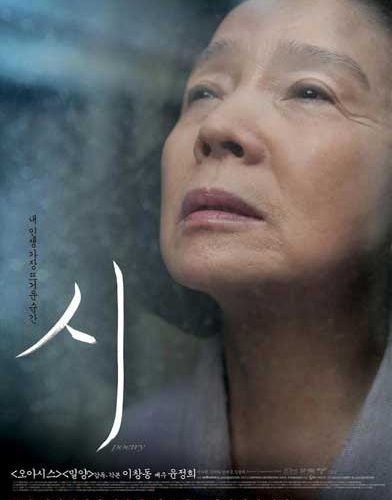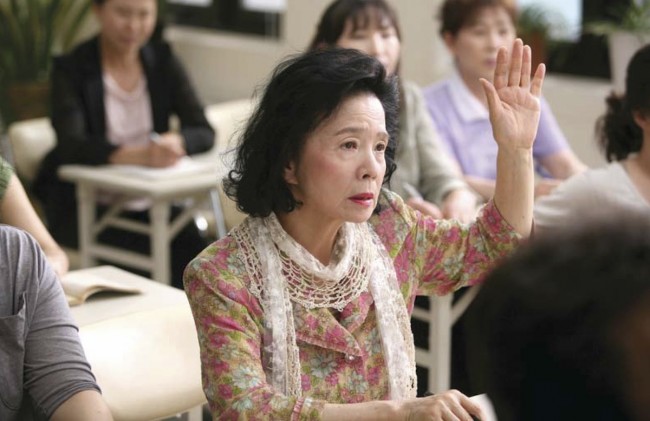There is an undeniable charm to Lee Chang Dong’s Poetry which examines the life of an elderly woman attempting to learn the art of writing poetry before she is consumed by old age and ultimately Alzhemiers. It’s a sobering tale of finding beauty in a violent and disturbing world, as a tragic murder involving a high school girl sets the landscape for the story. There is also an undeniable similarity between Poetry and this year’s earlier Korean film Mother in that they both focus on an older motherly figure struggling to come to terms with their lives. And while Mother dwells more on the suspense of the murder mystery, Poetry is very different in tone opting for a deeper emotional resonance and lyrical subtext. The end result is a both a beautiful and tragic story of attempting to understand life’s complexities at its most simplest.
The performance veteran actress Yun Jung-hee delivers as Mija, the protagonist in Poetry, is astounding and definitely the anchor of this film’s success in connecting emotionally with the audience. Mija is a woman in her sixties forced to take care of her dead beat grandson Wook (Lee David) while making a little extra money on the side as a house maid to elderly man, paralyzed by a stroke. Despite her daily struggle to maintain normalcy in her life, she decides to one day enroll into a poetry class at a local cultural center. There she is introduced to a new way of thinking about the world in trying to find the subtle beauty in the simplest of things. However as the murder mystery unravels to reveal connections with her grandson, she is forced to face the burden of guilt while also dealing with the onset of memory loss from Alzheimer’s.
The film at times feels a bit meandering in Mija’s random train of thought, but in effect it mimics the somewhat disconnected reality of her forgetful consciousness. Eventually she falls victim to the influence of extremely negative influences from the parents of fellow boys who are implicated in the crime. To free herself from the seemingly endless stream of negative energy, she does her best to examine and observe the simplicity and beauty in life for inspiration for her poetry. This proves to be a daunting challenge for Mija which allows a chance for the audience to simmer in similar feelings of isolation while hoping for the best.
There is a sad beauty throughout Poetry that will definitely leaves viewers haunted by what they have seen but also inspired by the strength the main character finds to confront her shame. The script which won the Best Screenplay award at the Cannes Film Festival earlier this year is extremely well written, filled with intelligent insight on poetry, words and life. While there are some definite moments of uneven pacing, Jung-hee keeps you transfixed on her expressive naiveté confronting seemingly endless adversity. Lee Chang-dong has created a subtle gem hidden among the ruff at this year’s New York Film Festival while definitely delivering one of the most humanizing performances of recent memory.
8 out 10
What did you think of Poetry?



